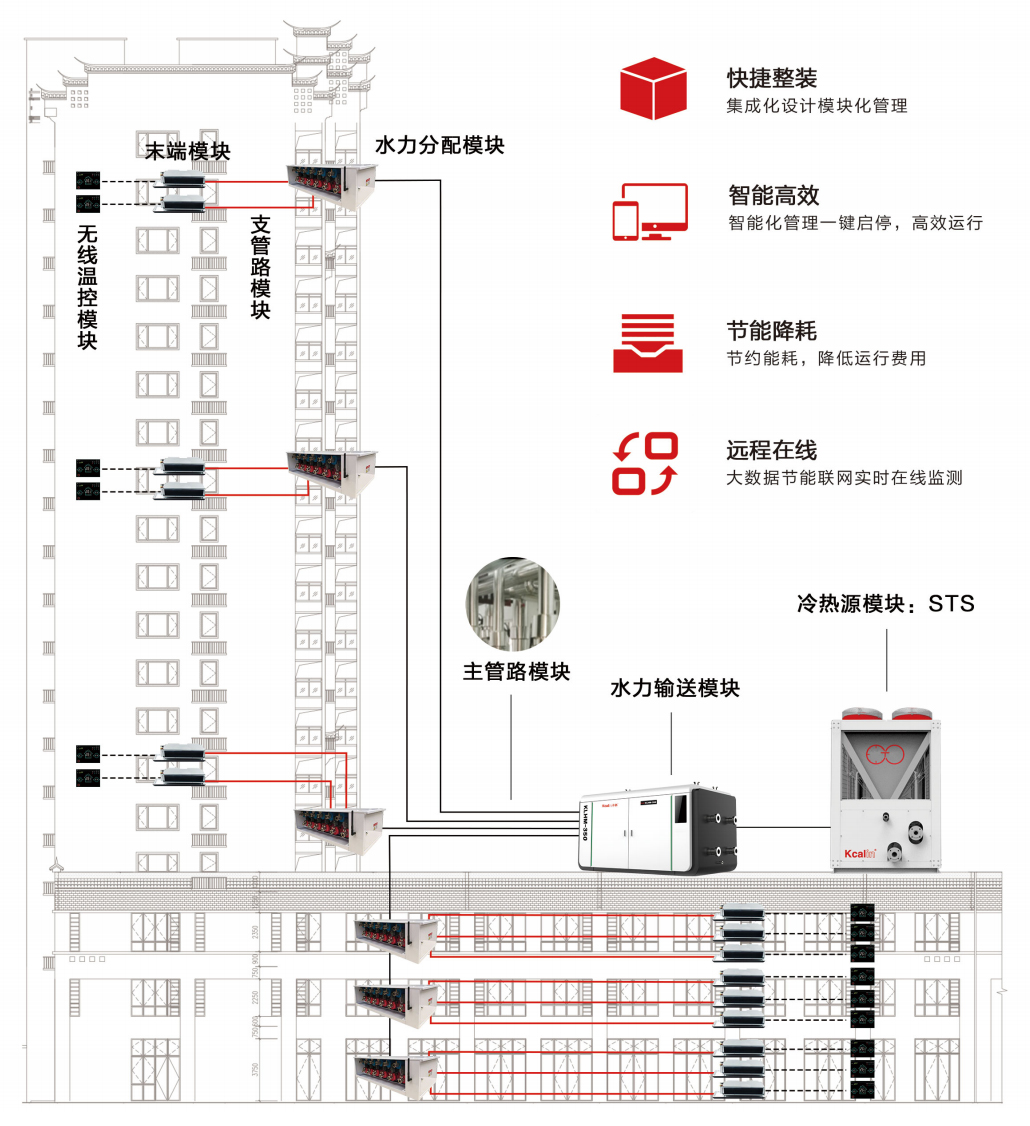Distributed heating refers to the way that the heating system is divided into several small areas, each of which operates independently and is connected by pipes to realize heating. The opposite is the centralized heating system, which gathers the heat source and the heating network together to supply heat to users. The difference between the two lies in the location and scale of the heat source and the heating network.
Specifically, the distributed heating system generally uses distributed heat sources such as air source heat pump and geothermal heat pump to supply heat to users in a distributed manner. It can flexibly adjust and control according to the actual needs of users, improve energy utilization efficiency, and reduce heat loss and waste.
The centralized heating system generally uses central heating facilities such as boiler room and heat exchange station to supply heat energy to multiple users. It usually requires a long heating network pipeline, which has certain transmission losses and is not flexible enough to adjust according to the actual needs of users.
Compared to traditional centralized heating methods, distributed heating has the following advantages:

Higher heating efficiency: Distributed heating can flexibly adjust the heating temperature and water supply according to the heating needs of different residential areas, avoiding heat loss caused by traditional centralized heating due to long distances and pipelines, and improving heating efficiency.
More reliable: because distributed heating divides the heating system into several small areas, each of which is independent, only one area will be affected in case of failure, which will not affect the entire heating system, improving the reliability of the heating system.
Lower operating costs: Distributed heating can flexibly adjust heating temperature and water supply according to the heating needs of different residential areas, reducing heat loss, thereby reducing energy consumption and operating costs of heating.
More environmental protection: the distributed heating system of air source heat pump does not produce harmful substances by using heat pump technology.
More convenient: distributed heating can arrange the heating system in each district, which is convenient for residents to use, and can be flexibly adjusted according to the needs of different districts, improving the convenience of heating.
In general, the distributed heating system is more flexible and efficient than the centralized heating system, which can meet the needs of different users and reduce energy consumption and operating costs.







Comment